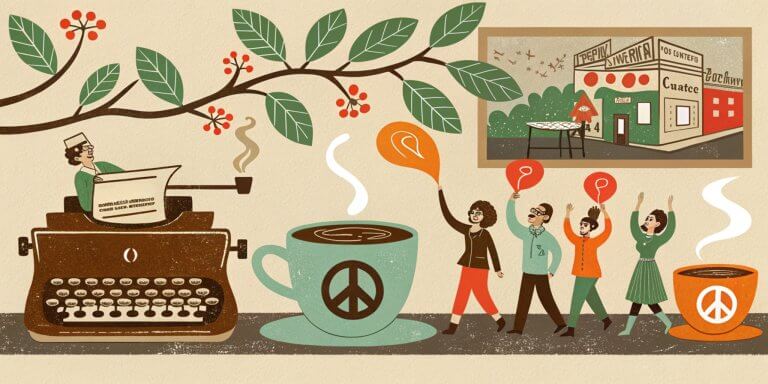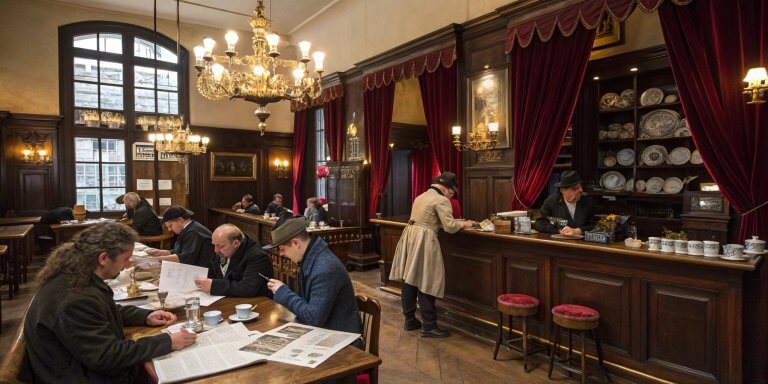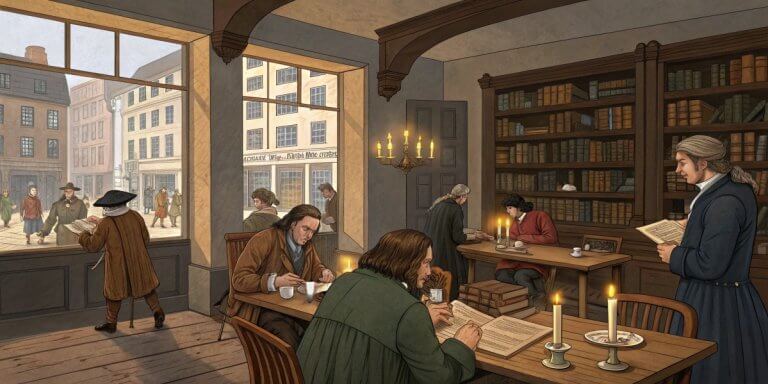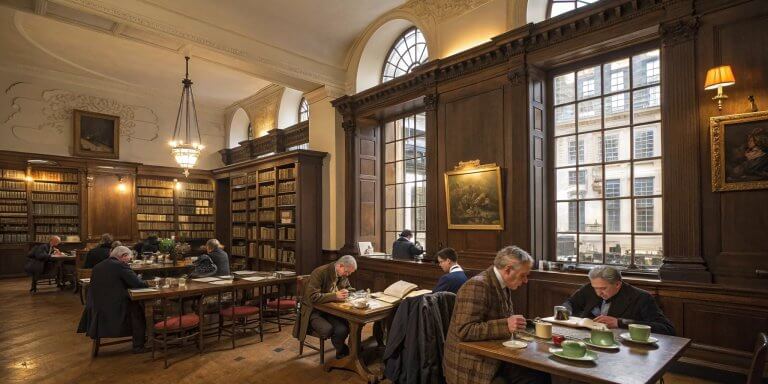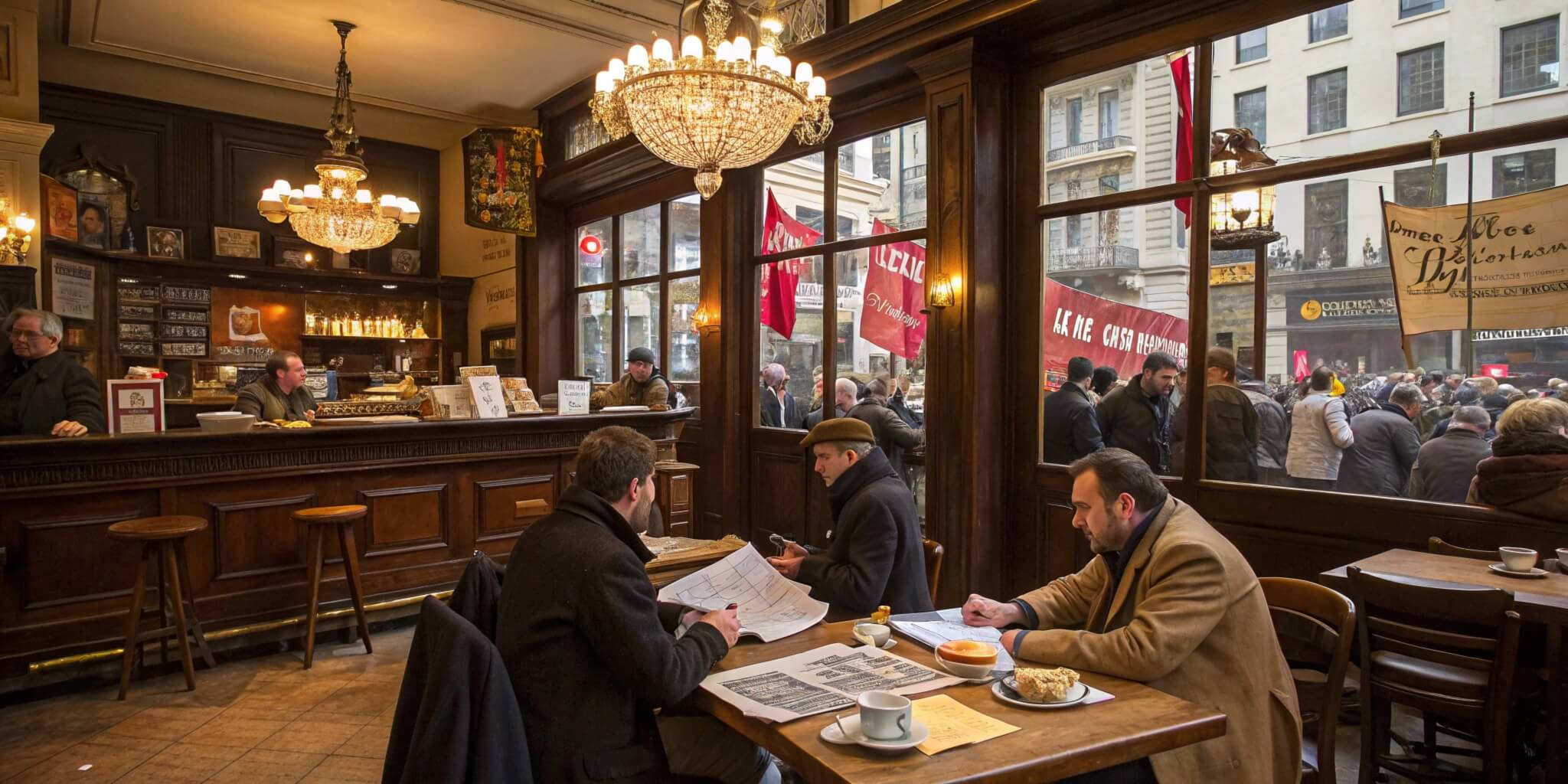
Coffeehouses did more than serve hot drinks—they fueled world-changing ideas.
In the 1600s and 1700s, these gathering spots doubled as planning rooms for historic revolts. Regular folks met over coffee to map out the American Revolution, the French Revolution, and other uprisings across Europe and America.
What set coffeehouses apart was their openness. Anyone could walk in, pay a penny, and join debates on politics and society. No other venue offered such a free exchange of ideas. Rulers knew this power and sometimes banned coffee just to stop the chatter.
This is the story of how coffeehouses went from simple cafés to the driving force behind political revolutions—and why this legacy still matters for anyone who loves coffee or history.
The Birth of Political Dialogue in Coffeehouses
Coffeehouses created a new space for serious debate that didn’t exist before.
In the 1500s Ottoman Empire, these coffee spots offered a sober alternative to taverns. People didn’t just sip coffee—they challenged kings, discussed philosophy, and shared news. Sultan Murad IV even banned coffee to stop these meetings. The penalty was death, showing how powerful a cup of coffee could be.
When coffeehouses reached Europe, they kept that open spirit. London’s first coffeehouse opened in 1652 and quickly became a hub for political chat that reshaped British society.
Early coffeehouses stood out because they:
These lively gatherings laid the groundwork for coffee’s reputation as the world’s most political drink.
How Coffeehouses Shaped Big Ideas
In the late 1600s and early 1700s, coffeehouses became hubs for sharing new thoughts on rights, reason, and reform. Merchants, writers, and students met over coffee to debate ideas.
Coffeehouses stood out because they:
Anyone could join in. A shopkeeper might question a scholar, and a student could challenge a merchant. These open talks helped spread Enlightenment ideas quickly. Handwritten newsletters carried news from London to Paris overnight, fueling discussions about freedom and rights.
Coffeehouses and the American Revolution
Coffeehouses became the nerve centers of colonial resistance long before the first shots were fired.
In 18th-century America, city coffee shops hosted fiery debates about “taxation without representation.” Merchants, lawyers, and sailors gathered over steaming cups to argue British policies and plan boycotts. These chats helped form groups like the Sons of Liberty and disseminate news of protests instantly.
What made colonial coffeehouses crucial:
One famous example: Boston’s Green Dragon Tavern—nicknamed “the headquarters of the Revolution”—hosted meetings that led to the Boston Tea Party. This simple café culture turned casual sips into revolutionary strategy sessions, setting America on the path to independence.
Coffeehouses and the French Revolution
In late-18th-century France, cafés became the hotbeds of revolutionary talk.
Parisian coffeehouses, such as Café Procope, drew writers, lawyers, and ordinary citizens. Over cups of strong coffee, they debated liberty, equality, and fraternity. These meetings spread ideas from thinkers such as Rousseau and Voltaire to the masses.
Key reasons French cafés mattered:
One landmark spot, Café Procope, hosted the early meetings of the Jacobins—a political club that played a central role in directing revolutionary events. These coffeehouse chats didn’t just brew ideas; they fueled the storming of the Bastille and the reshaping of France.
The Lasting Legacy of Revolutionary Coffeehouses
Coffeehouses left a mark that still matters today. They proved that simple spaces can spark significant change. By opening their doors to everyone, these cafés turned casual chats into powerful movements.
Over centuries, the coffeehouse model spread worldwide. Modern cafés—from European bistros to American espresso bars—still echo that spirit of open discussion. Today’s co-working spaces and online forums carry on the tradition of shared ideas and collaboration.
What this history teaches us:
Next time you sip your favorite brew, remember you’re part of a centuries-old tradition. Coffeehouses did more than wake people up—they woke them to new possibilities. Whether you’re meeting friends, working remotely, or joining a book club, you’re continuing a legacy of conversation that once shaped nations.

